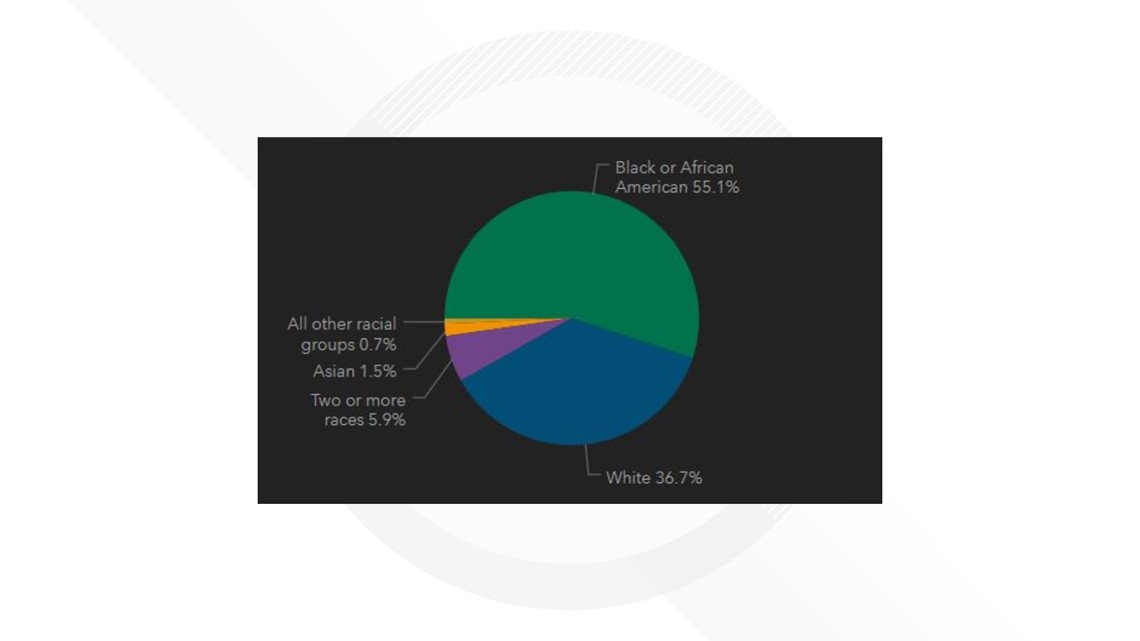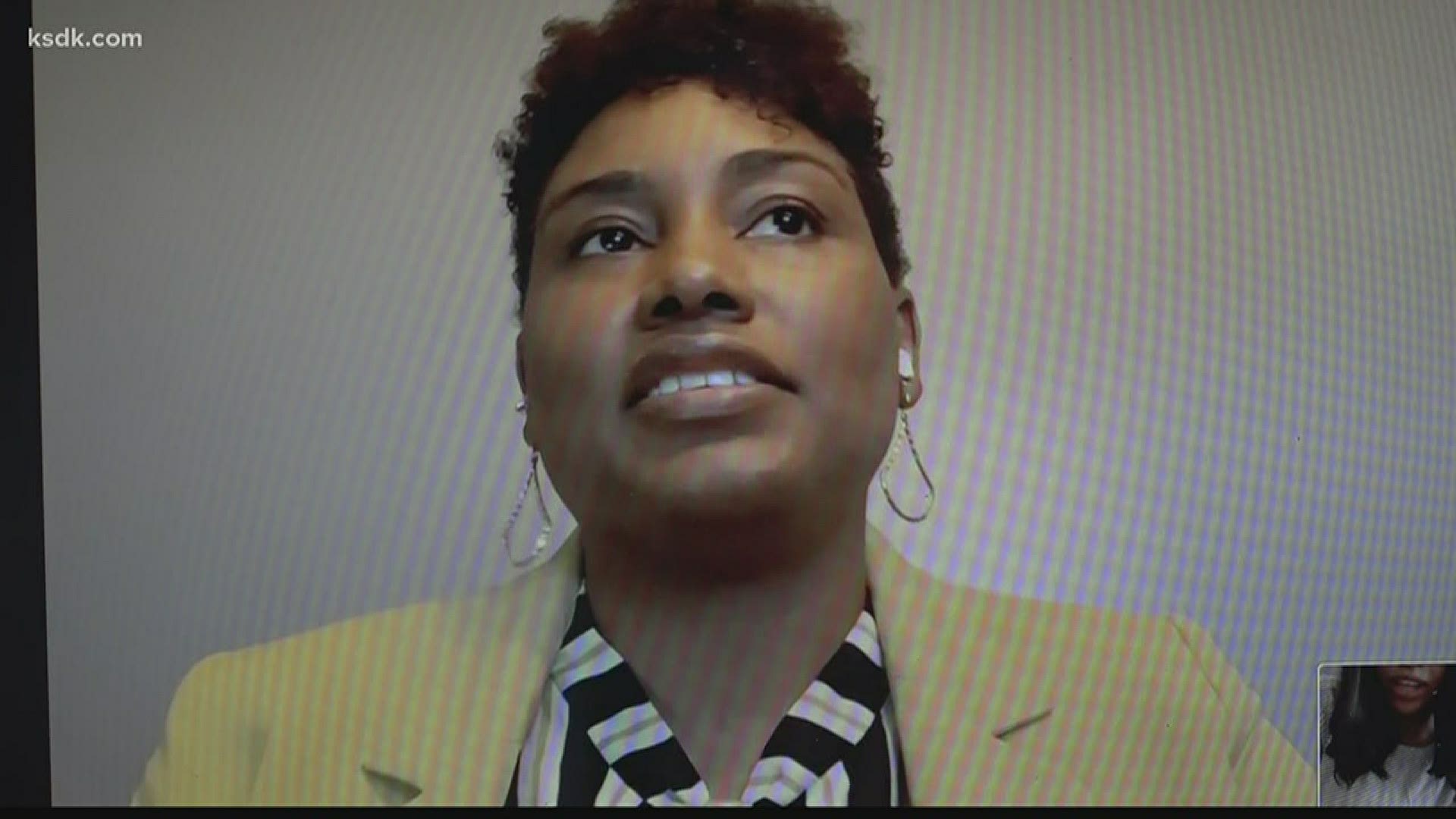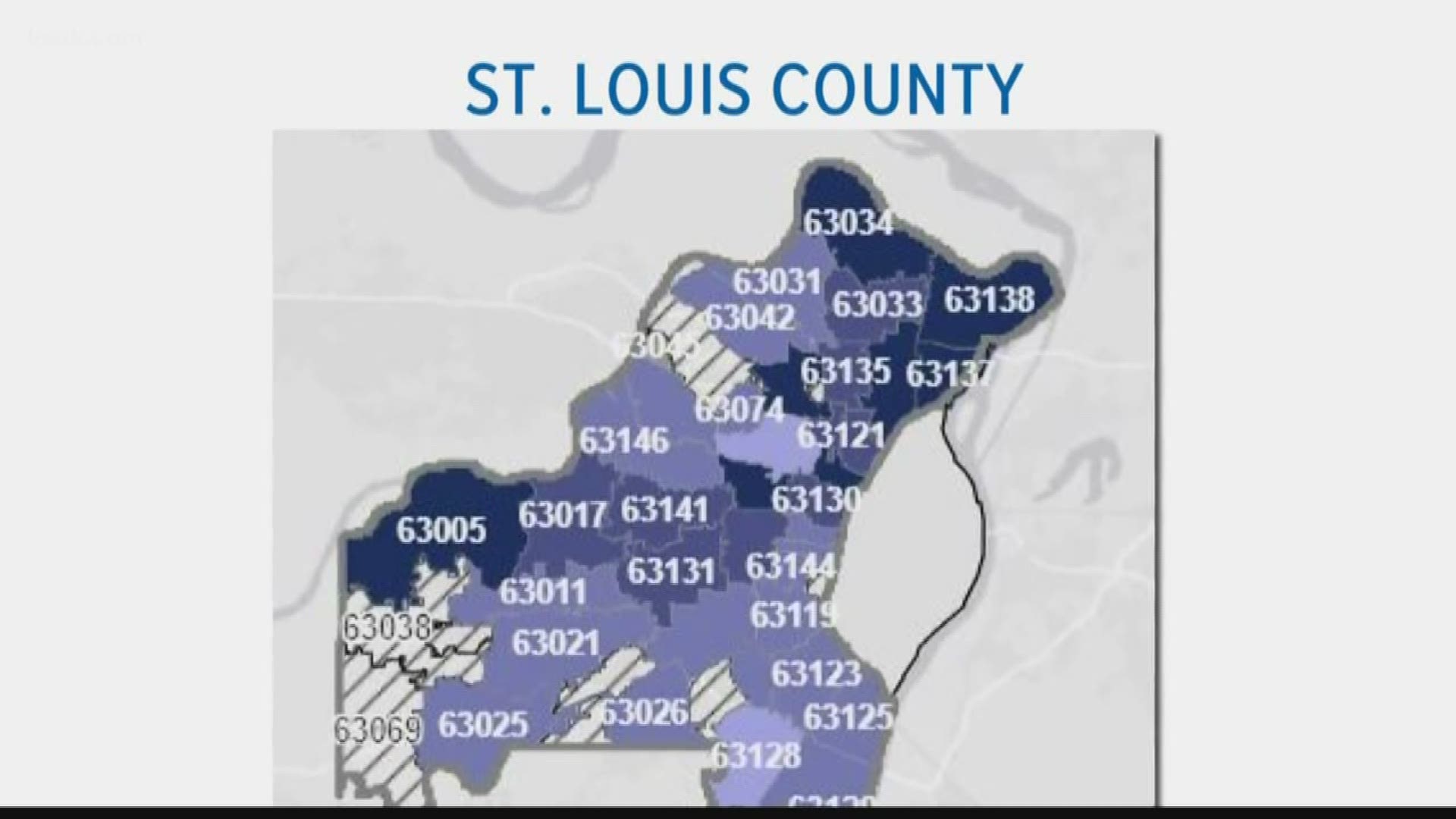ST. LOUIS — More areas are beginning to release racial data when it comes to the COVID-19 pandemic.
In the St. Louis area, the virus appears to be affecting African Americans more than any other race, according to most recent available data.
As of April 9, all 13 COVID-19 deaths in the City of St. Louis were African American people.
The City of St. Louis Department of Health director Fredrick Echols made the announcement in an article published in the St. Louis American.
"Many of the preexisting conditions that make the coronavirus more dangerous for some people — like heart conditions and diabetes — disproportionately affect the black community. This is why everyone in the City of St. Louis — especially African Americans — must take precautions against spreading this disease," Echols wrote in the article.
Mayor Lyda Krewson wrote the following in a tweet on April 8,
“As of today, all COVID-19 deaths in the City of St. Louis are African Americans. This reinforces the health disparities that existed before this virus, but also compels us to action now. The City of St. Louis’ Department of Health is committed to providing equitable access to testing for all,” Krewson tweeted.
And in St. Louis County, data released from officials on COVID-19 shows African American people are being hit hardest.
The county began including data of positive cases by race on its dashboard on April 9. The chart on its website represents 60% of positive cases in the county for which race was provided to its department of health. Race was not provided for 40% of the positive cases. As of April 9, there are 1,337 cases in the county and 28 people have died from the virus. Of that data, 55% are African American, 36.7% are white, 1.5% are Asian, two or more races make up for 5.9% and .7% are other racial groups.


Doctor Alexander Garza of the St. Louis Metropolitan Pandemic Task Force said there is a higher proportion of people that are affected with COVID-19 in the minority population.
He explained that the tracking aligns with what other cities such as Chicago, Detroit and New York are seeing.
“And the reason for that isn't necessarily about race. It's about social inequities. We know that populations that are socioeconomically challenged, that don't have access to good health care, that don't have access to nutritious food, are victims of many diseases, including diabetes, high blood pressure, all of these things,” Garza said.
“So the question isn't really, is it affecting a minority more so than others? Really, what it is, is it's an indication of social inequities that existed before this pandemic came around. And so really, it's a symptom of the disease of social inequity. It's not that the virus has any predilection for minorities. It really is just a reflection of what we know is already exists out in the community.”
Local health organizations announced they were teaming up to reach the most endangered during the pandemic.
According to Vector Communications, the Regional Health Commission, the City of St. Louis Department of Health and the St. Louis County Department of Public Health, have joined forces to conduct a unified communications and outreach campaign to reach the most vulnerable and under-resourced populations during the coronavirus pandemic.
The press release said, the campaign is called ‘Prepare STL,’ and it targets mostly African American people who are disproportionately dying from COVID-19 compared to other Americans, immigrants/New Americans, low-to-moderate income and seniors living in St. Louis city and county.
“There are still people not taking this virus seriously and we want everyone to be prepared to handle it,” says Angela Fleming Brown, CEO of the Regional Health Commission, which exists to improve the health of the uninsured and underinsured in the city and county. “We want them to understand what COVID-19 is, how to stop the spread and how to survive the shutdown physically, emotionally and economically.”
As part of its campaign, PrepareSTL will provide the latest information on COVID-19 along with resources on its website.
“PrepareSTL provides the City of St. Louis and St. Louis County with a means to reach all segments of our community with COVID-19 messaging, especially those who do not have internet access and those who do not rely on traditional media,” Echols said.
On April 11, canvassers, outfitted in personal protection equipment, will be going to high visibility community hotspots such as grocery and convenience stores, gas stations, laundromats, and check cashing businesses. They will be placing posters, sandwich boards and flyers at these locations, organizers said. ZIP codes with the highest poverty rates have been selected for the community canvassing. Many are in north St. Louis city and County, including: 63106, 63107, 63115 and 63120 in the city and 63136 in the county.
The Missouri Department of Health and Senior Services published information about the race of COVID-19 patients for the first time on April 9.
RACE DATA NATIONALLY
The Associated Press reported, as the coronavirus tightens its grip across the country, it is cutting a particularly devastating swath through an already vulnerable population — black Americans.
Democratic lawmakers and community leaders in cities hard-hit by the pandemic have been sounding the alarm over what they see as a disturbing trend of the virus killing African Americans at a higher rate, along with a lack of overall information about the race of victims as the nation’s death toll mounts.
“Everywhere we look, the coronavirus is devastating our communities,” Derrick Johnson, president and CEO of the NAACP said to the Associated Press.
Among the cities where black residents have been hard-hit: New York, Detroit, New Orleans, Chicago and Milwaukee.
Doctor Deborah Birx made an appearance on the Today Show on Wednesday.
"We don't think African Americans are more susceptible to getting infected," Dr. Deborah Birx, the coordinator for the White House Coronavirus Task Force, said on the Today Show. NBC News reported that she said her group was "very concerned" when it became clear that pre-existing conditions, such as diabetes, high blood pressure, obesity and asthma were associated with worse outcomes of the coronavirus.
PREVIOUS STORY


